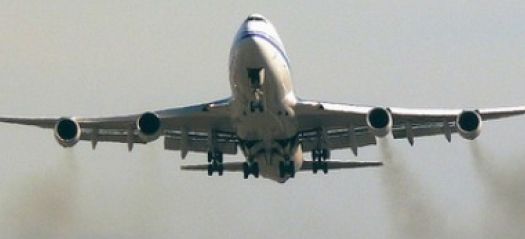
(Photo credit: dsleeter_2000/flickr/cc)
The airline industry is one of the world’s largest polluters and accounts for an estimated 2.4% — 3% of global emissions. Before the pandemic, there was a major push by governments and private companies to create a more carbon-neutral economy, whether by offsetting emissions or by actually reducing them.
In 2016, 191 countries signed the Carbon Offsetting and Reduction Scheme for International Aviation (CORSIA), a United Nations program agreement drafted by the International Civil Aviation Organization (ICAO). The agreement was put into place to have airlines offset their carbon emissions below their 2019 and 2020 average baseline levels.
The program was voluntary for member states until 2027. Now, due to the coronavirus’ effect on the industry, the UN is giving a break to airline companies after industry stakeholders petitioned the ICAO to ease the terms, citing the “inappropriate economic burden” it would pose.
The Economist reported that “Now emissions are forecast to fall by 37% this year, which would mean a lower baseline — and so, in time, higher offsetting costs.” Airlines may now use their 2019 emissions, which are much higher than this year, to calculate their reductions targets and subsequent offsetting investments.
Projections show $84.3 billion in airline industry losses this year, and governments have already bailed out some of their airlines. Germany bailed out Lufthansa to the tune of $10 billion, and the US approved $32 billion for American carriers. The UN’s decision will assist even more, though real enforcement of such international agreements is, admittedly, difficult and uncommon.
Environmentalists, as well as carbon offsetting agencies, are disappointed at the move, as it is extremely difficult to reduce the greenhouse gas emissions of aeroplanes. Technology is nowhere near the point of offering electric aeroplane options, as it is with automobiles, so planes will continue to guzzle jet fuel for the foreseeable future.
The easing of the CORSIA plan’s targets is a blow to climate activists, but many airlines had already made their own commitments to environmental stewardship. Delta committed to reaching net-zero emissions by 2050 and British Airways expressed wanting to make jet fuel from household waste.
Public perception could have played a part in these ambitions, and the pandemic may cause the public to be less concerned with climate change, but the effects of climate change are still being felt. Mysterious pink ice has been found in Italy, a sign of accelerated melting, and researchers are finding it precarious to even get data in the Arctic due to the uncommonly thin ice.
Still, when government officials have a debate about whether to help the economy or the environment, the economy almost always wins. The negative effects of a disaster on an industry’s bottom line are quantifiable, whereas the effects of a climate-related disaster are less so. One cannot specifically attribute a particular extreme weather event and its economic damage to a government’s decision to opt-out of an emissions’ reduction plan.
The pandemic has created lasting psychological impacts on people around the world. Even after things return to some semblance of normalcy, after a vaccine is created and made widely available, people may still feel uncomfortable with the idea of travelling in a confined space and breathing recycled air, amid strangers, for hours on end.
Airline companies don’t anticipate the numbers of passengers rebounding anytime soon, which, in itself, will be better for the planet.
Though some parts of the world are already getting back to normal, there is cautious optimism about the future. The stock markets remain volatile, and industries are lobbying for bailouts and modifications to regulations.
The post-coronavirus world is sure to be different from the pre-coronavirus world. Decisions made today will affect the future, but it does not mean that all hope is lost for reducing emissions enough to stave off runaway warming. CORSIA was ambitious, but it was never going to be the thing that “saved the planet.”
Sarah Sakeena Marshall,
Grit Daily Staff Writer, The Muslim News Environmental Columnist